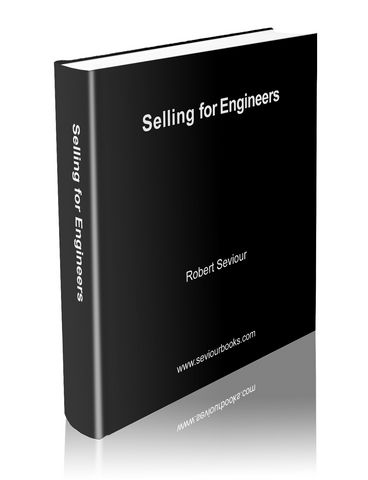![]()
How to make a convincing case
for something
Desperate to convince the jury of your innocence? Asking the boss for a raise? Or would you prefer to watch the big game rather than go shopping with your partner.
Life throws many situations at you when it's rather handy if you can make a convincing argument.
And here's one very good way to do just that. Wish I had thought of it, then mine might be the name resounding through millennia in centres of learning. That's not likely though, for it was good old Socrates who came up with the technique and whose name has been attached to it since. It's known as Socratic questioning.
* * *
Let's start with a fundamental:
You can't convince anyone about anything.
That looks like nonsense at first glance, I know, but hang on a second. What the statement means is, it doesn't matter how much logic and evidence you offer, to your subject, the sum of it is less convincing than his / her own thoughts and opinions.
So if you want an idea to be accepted, it's easiest if the idea comes from them, the person you are talking to. (Or, at least, he / she thinks it does.)
I'm not laying claim to originality here either. If you grew up in Britain or other parts of the map which used to be coloured pink, you may have seen a BBC comedy show called 'Yes Minister'. Its oft repeated theme was the way the Minister for Administrative Affairs was manipulated by the civil servants that he was nominally in charge of.
Their cunning ruse was to somehow convince the Minister that what they, the people who actually ran the government department, wanted - was his idea.
If that can be accomplished there is no resistance, it's beautiful. But how? We must go back to Athens and ask the learned one. He say "Αντί της αφήγησης, να κάνει ερωτήσεις", which means:
Instead of telling, ask.
There is fantastic power in this approach. Let me demonstrate by asking you a couple of questions.
What's the best decision you ever made?
How did you arrive at that decision?
The questions could be about anything other than the blindingly obvious. What questions do is make people think.
I'll put that in bold, now that I think about it, ha-ha.
Questions make people think.
And as just mentioned, what we are aiming to do with the question is to get the subject to reach the particular opinion that we like.
Is this manipulative? Hard to argue that it isn't. So then it's bad? Depends. Is what you are suggesting ethical and in the interest of the subject / his or her people / company / the planet? If so, I'd say it's ok to use it. But as with any powerful tool, people can get hurt so be nice, please.
The Socratic questioning method can be used in any circumstance where you want to convince a person, but since the theme running through this website is about sales skills for engineers, scientists and techies, let's home in on a typical business application.
Say we are having a meeting with a potential client. The stereotypic approach is to ask a number of preliminary questions (commonly on topics which are not directly relevant to the main theme - and hence of little value) - followed by a lengthy exposition of the sterling qualities of your company / product / service. That is to say, far more talk from you than by the prospective client.
This is bad.
Far better is to ask some germane questions, and in such a way that the client reveals what issues matter most to him / her.
You could go straight for the kill and ask, "What are the considerations which are the most important to you in this matter?" But you would probably want to (a) try and build a degree of empathy first. (b) be a bit more subtle (c) employ less stuffy language than me.
Here are some ideas for questions which you could use as- is or permutated:
What is the main reason you are looking at . . . (relevant topic/issue)?
How have you dealt with this before?
What would you want to improve on? (related to what they did before).
How would you like to go about this ideally?
And so on - there's a lot more on this at another article,
That would be a good way to start. Now let's consider a later stage, which in some circumstances would be called 'closing'.
If it's likely that you will face a 'price objection', you could proceed like this: (I'll pretend that I am a sales engineer / rep for this).
"Jim, I'm aware that you will be looking at bids from other suppliers, and that we will most likely be amongst the most expensive. May I explain to you why we choose to be like that?
We employ people with a lot of experience and the appropriate qualifications.
Ours is a full-service company with all necessary functions in-house.
Work is performed carefully with checks wherever needed.
This cannot be done on the cheap.
So may I ask you what degree of risk you are prepared to take in choosing a supplier?
Listen carefully to the answer, which in engineering and science, is likely to be 'We don't want any risk' or something along those lines.
In so doing, you have not said that you are the safest bet and that being safe is what matters most to the client. Instead he / she has likely reached that conclusion her/him-self.
(If you have any doubt about how powerful suggestion of this type can be, watch a few YouTube videos of Darren Brown in action.)
Depending on the particular situation, you can add weight to the case that you are making by mentioning the consequences which can follow when a supplier does work badly or the component chosen is not up to the job. Relate any examples to the situation the prospect has described in your early questioning.
Furthermore, when writing a proposal, you can do it in such a way that it makes it easy for your prospect to suggest choosing your bid when reporting to higher decision-maker(s), such as 'the board'.
Warning - Socratic questioning used clumsily can get you into trouble. It did me, in the early days of my sales career.
My prospect was an architect, I was trying to sell him a 'smart' heating controls system. I launched into my presentation by asking a lot of technical questions which I hoped would lead him to purchase the kit.
It didn't work out like that though. A little way into my monologue, he stopped me and said, 'I'm not interested in being lectured on science by you.' and told me to leave.
This annoyed me and as I exited, I gave a satisfying kick to the two flower pots decorating his front door.
Next day, my boss contacted me and said, 'There's been a complaint about you to head office. I've had to do a lot of pleading to stop you being fired'.
Oops, won't be doing that again.
* * *
You need to be a bit wily to pull this technique off, it can annoy. I nearly found myself out of a job and poor old Socrates upset certain of his audience so much that he was prosecuted and given the choice of exile or death by hemlock poisoning . . . he chose the latter.
But used adroitly, it will convince the jury of your innocence, get you that raise, and you won't miss the big game.
Have I convinced you?
* * *
If you enjoyed this article, take a look at my book.
About the Selling for engineers manual
* * * Here's a
question, which led to
many clients for my services "Is
there someone in your company who would benefit from some sales
training?"
Well is there?
![]()

"You've gotta ask yourself one question"
"Did he fire six shots or only five?" Well to tell you the truth in all this excitement I kinda lost track myself. But being this is a .44 Magnum, the most powerful handgun in the world and would blow you head clean off, you've gotta ask yourself one question: "Do I feel lucky?" Well, do ya, punk?
Clint Eastwood in the movie
More articles on better selling
Questions/comments - drop me a line at
![]()
